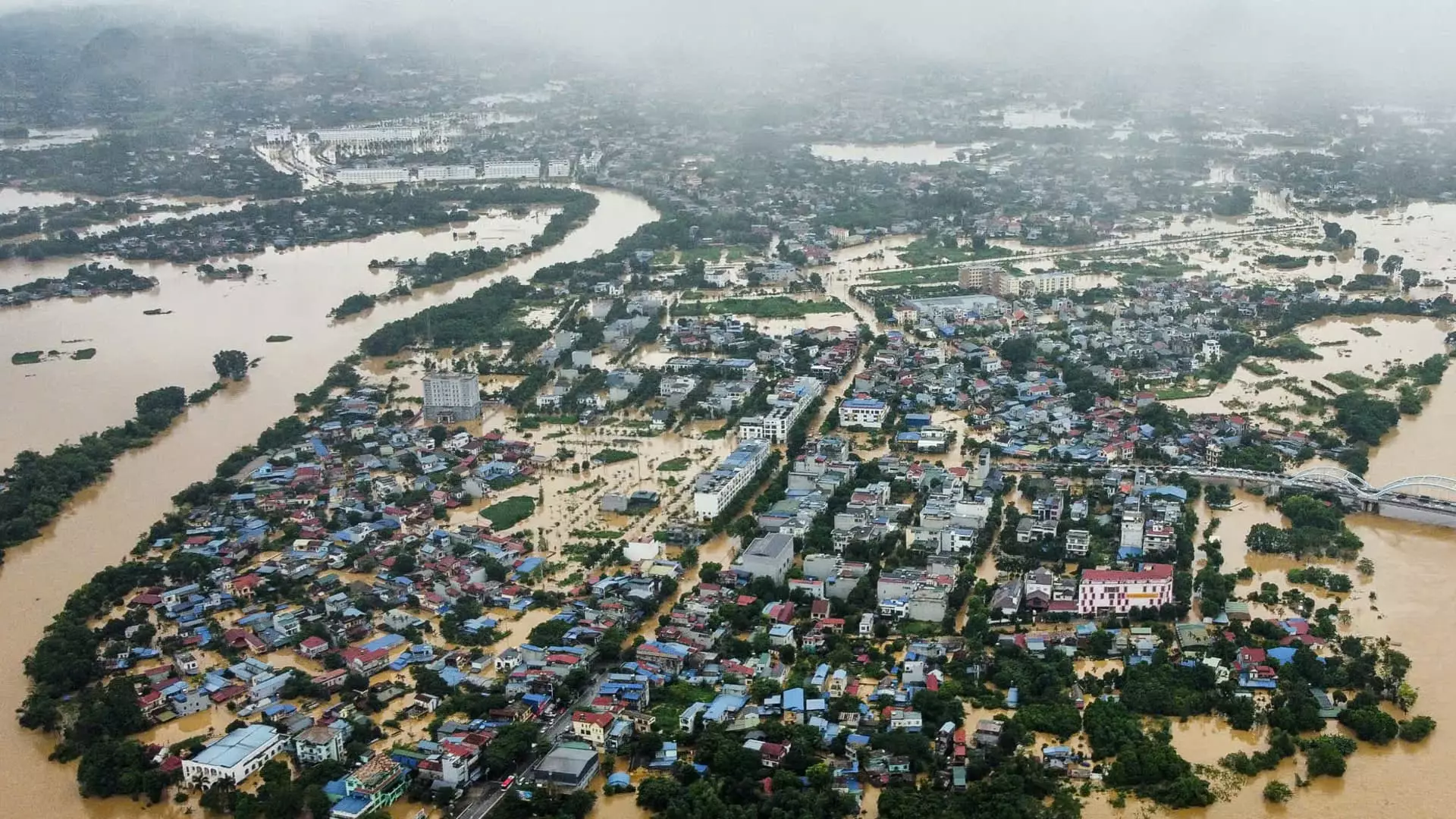The Indo-Pacific region in 2024 presented an intricate tapestry of both hardship and resilience. Just as 2023 had offered little to uplift spirits, many individuals found themselves grappling with a mix of economic instability and persistent geopolitical conflicts. However, amidst these clouds of uncertainty, flickers of hope and achievement shone through. As we step into 2025, with the specter of Donald Trump’s possible return to presidency looming, it’s crucial to reflect on the complexities of the past year.
One significant highlight of 2024 was the alarming increase in climate-related disasters. The region, already notorious for its susceptibility to natural calamities, saw a staggering rise in the number of what can only be described as “climate casualties.” Unlike the catastrophic Indian Ocean earthquake and tsunami of 2004, which took more than 200,000 lives, this year’s fatalities stemmed from a series of relentless weather anomalies. Super Typhoon Yagi, which made landfall in November, exemplified the devastation as it carved a path through Southeast Asia, claiming numerous lives and obliterating livelihoods from the Philippines to southern China.
Furthermore, the monsoon season brought relentless floods, particularly impacting Afghanistan, Bangladesh, and India, where communities were left stranded and grappling with tremendous loss. It became painfully evident that extreme weather events had transitioned from infrequent occurrences to a grim norm, raising questions about the international community’s response and the measures being taken to mitigate such looming catastrophes.
As the region faced environmental challenges, another looming crisis became increasingly apparent: declining fertility rates. Across East Asia, nations like South Korea, China, and Japan continued to encounter record-low birth rates, triggering alarm bells among demographers and policymakers alike. The societal shift towards prioritizing careers, combined with the prohibitive costs associated with child-rearing, loomed large over the aspirations of families desiring children.
South Korea’s demographic struggles intensified to the extent that it was officially recognized as a “super-aged” society, with over 20% of its population aged 65 or older. This burgeoning elderly demographic juxtaposed against a dwindling young population poses significant economic repercussions. The long-term impact on labor markets and social welfare systems hints at a significant restructuring of national policy priorities.
The Electoral Landscape: Complex Political Dynamics
2024 emerged as a tumultuous year for electoral politics, with elections taking center stage across numerous countries, each revealing the intricate dynamics of power within a diverse political landscape. In Bangladesh, a deeply controversial election culminated in widespread protests and the subsequent fleeing of Prime Minister Sheikh Hasina. Simultaneously in South Korea, the political climate soured dramatically as President Yoon Suk-Yeol declared martial law following a significant electoral defeat, raising concerns about the fragility of democracy.
Yet amid the electoral chaos, notable successes for democratic processes also emerged. Taiwan demonstrated the robustness of its democratic institutions, while India saw Prime Minister Narendra Modi forced into governance alongside coalition partners. The seamless transition of power in Indonesia to the erstwhile General Prabowo Subianto reflected the continent’s diverse trajectories, underscoring that Asia’s political fabric is woven with both challenges and triumphs.
Cultural Exports: The Rise of ‘Hallyu’
Beyond the spheres of disaster and politics, 2024 was marked by the flourishing of South Korea’s cultural influence, popularly known as ‘Hallyu.’ The proliferation of K-drama, K-pop, and Korean cuisine further solidified the country’s presence on the global stage. With over 300 Korean films and series available on platforms like Netflix, cultural consumption shifted significantly, presenting a colorful counterpoint to the socio-economic challenges faced by the region.
Han Kang’s recognition as the first Korean and Asian woman to win the Nobel Prize for Literature demonstrated the global reach and appreciation for Korean art and literature. Such cultural phenomena not only resonate with audiences worldwide but also contribute significantly to the South Korean economy, projected to yield up to $198 billion by 2030. Their influence encapsulates the concept of soft diplomacy, positioning Korea as a formidable force in global cultural discourse.
Lastly, the viral phenomenon of Moo Deng, the baby pygmy hippopotamus born in Thailand, captivated global audiences and highlighted the intersection of social media, culture, and wildlife appreciation. Despite the tumultuous events of 2024, Moo Deng’s rise to fame on platforms like TikTok and X showcased the power of digital connectivity to bring joy amidst widespread distress.
As we reflect on the myriad stories that unfolded in 2024, it becomes clear that the Indo-Pacific region continues to navigate a convoluted landscape filled with challenges while simultaneously uncovering narratives of resilience, cultural blossoming, and evolving societal values. With a hopeful gaze toward 2025, it becomes imperative to consider how these themes will evolve in the new year.



Leave a Reply